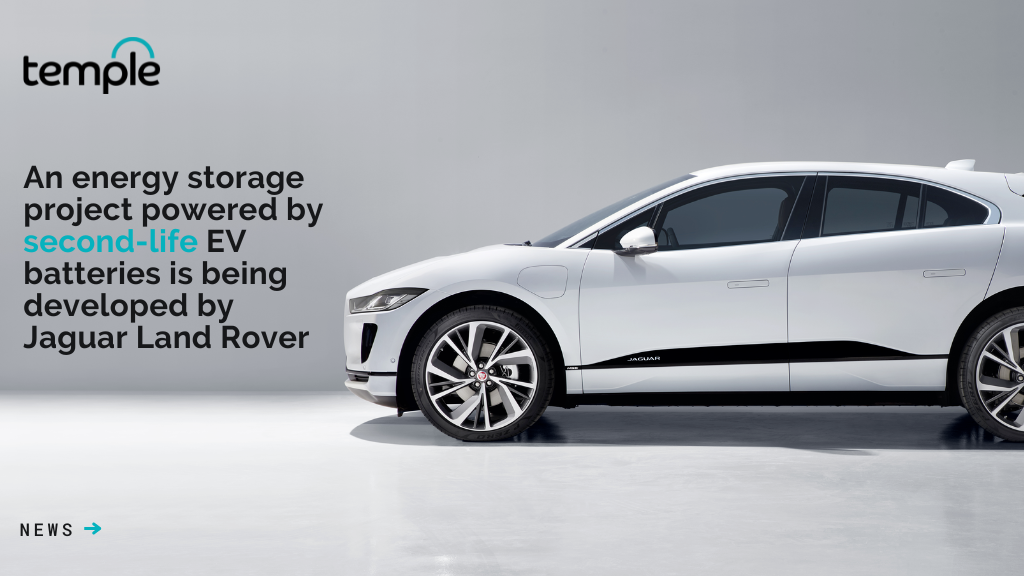
The PSTI Act, a new cyber security law in the UK, takes effect today.
The 29th of April 2024 is an important date for IoT manufacturers and anyone selling connected devices in the UK. This brand new and world-leading

A solar and wind park in the Midlands is using used Jaguar electric vehicle batteries as large-scale energy storage systems.
Wykes Engineering has developed one of the UK’s largest energy storage systems using second-life car batteries in collaboration with Jaguar Land Rover (JLR).
Batteries from Jaguar I-PACE vehicles will be converted into large-scale container systems that will be installed in three locations within Wykes’ Chelveston renewable energy park in Northamptonshire/Bedfordshire.
Each of the three locations can store up to 2.5MWh of energy. Part of one is already operational. Upon completion of all three and 7.5MWh of storage, the network will be able to store and discharge enough electricity to serve 750 homes a day.
Wind turbines and solar panels at the energy park will generate electricity when conditions are favorable, and it will be discharged when demand is high and conditions are poor. During off-peak hours, they can also draw power from the grid and store it for future use.
The JLR batteries used in this project will have a capacity of 70% to 80% of what they had in vehicles. When an electric vehicle’s battery capacity and general health decline below a certain level, it needs to be replaced for the vehicle to function at its best.
An energy storage cabin with a capacity of 2.5MWh will require 30 I-PACE batteries.
Transition to circular energy
Increasingly intermittent renewable electricity generation requires the adoption of batteries in order to maintain energy security. As heat and road transportation are electrified, this also contributes to saving on network costs.
The use of second-life EV batteries for energy storage can mitigate other challenges, such as the need for virgin raw materials and the need to responsibly reuse or recycle EV batteries.
JLR’s executive director for strategy and sustainability, Francois Dossa, said: “Our sustainability approach addresses the entire value chain of our vehicles, including circularity of EV batteries.
“Using the 70-80% residual capacity in EV batteries, before being recycled, demonstrates full adoption of circularity principles.”
With the Jaguar brand transitioning to an electric catalogue in 2025, petrol and diesel vehicles will no longer be sold. Due to forthcoming bans on new petrol and diesel cars and vans in the UK and EU (2035), Land Rover is planning a slower transition.
To achieve this pace of decarbonisation, JLR as a group plans to implement circular economy approaches across its entire value chain by 2039.

The 29th of April 2024 is an important date for IoT manufacturers and anyone selling connected devices in the UK. This brand new and world-leading

Dave Treadwell, VSUK Quality Manager and subregion Coordinator for VSNE covering Holland and Germany, takes us through his experience of becoming a CQI Fellow and

Temple QMS is delighted to be supporting the roll out of new grant funding in the Shropshire region. We will be supporting SME manufacturing businesses

Global Compliance – Online event This presentation from Management Consultant Peter Lee, will be held 15 May 2024 – 19:00 – 19:45 CE and UKCA